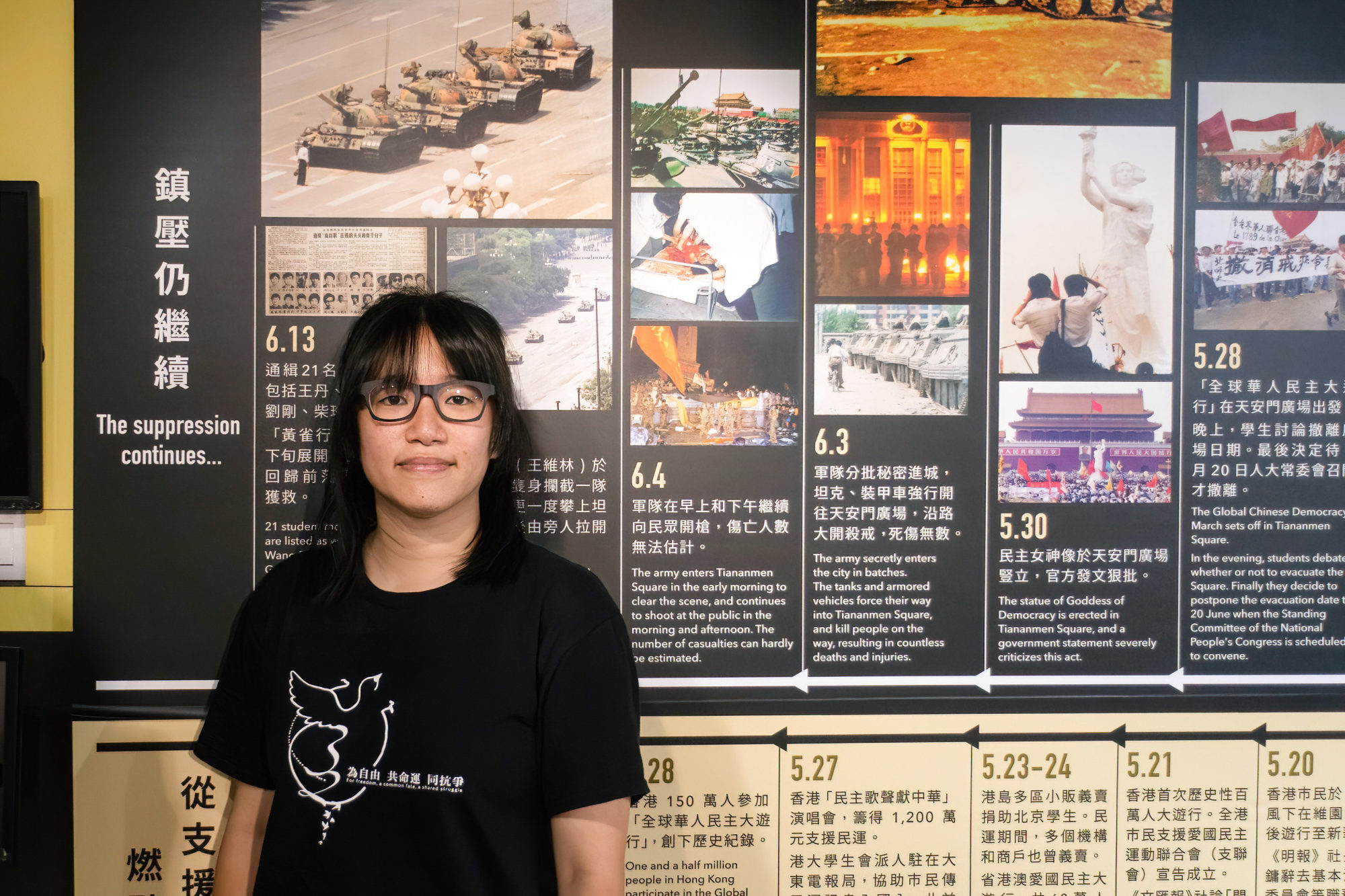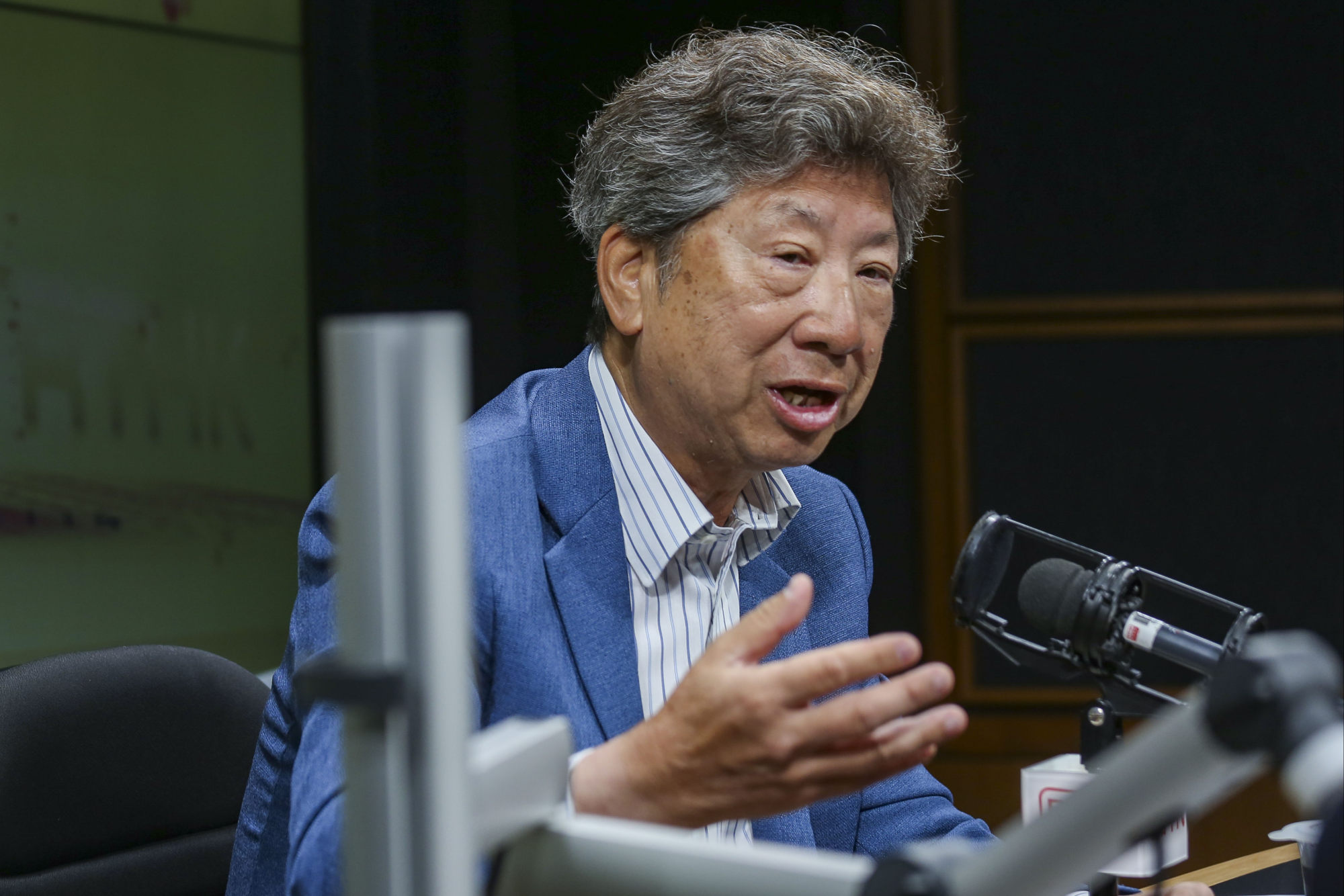Hong Kong’s new domestic national security law will “inevitably” produce some degree of chilling effect but prosecuting suspects will require a higher threshold than that of an arrest, legal experts have said, after a remanded activist and six others were arrested for sedition over content on the Tiananmen Square crackdown.
Chow Hang-tung was among the seven arrested on Tuesday and Wednesday. She is a former chairwoman for the now-defunct Hong Kong Alliance in Support of Patriotic Democratic Movements of China, which previously organised June 4 vigils at Victoria Park to mark the crackdown.
Chow is currently remanded at Tai Lam Centre for Women for a separate offence.
Do you have questions about the biggest topics and trends from around the world? Get the answers with SCMP Knowledge, our new platform of curated content with explainers, FAQs, analyses and infographics brought to you by our award-winning team.
The arrests are the first under the Safeguarding National Security Ordinance, with security chief Chris Tang Ping-keung saying the cases focused on allegedly seditious content posted on a Facebook group called “ChowHangTungClub” since April.
University of Hong Kong legal scholar and former Basic Law Committee member Albert Chen Hung-yee said that while sedition was an offence carried over from colonial-era criminal law that referred to the British monarch, the new legislation introduced new elements to the crime.

“Even with the post-1997 substitution of the British crown by the central government for the purpose of interpretation, before the new ordinance was enacted, there was no legal provision on inciting hatred, contempt or disaffection against the ‘fundamental system of the state’,” he said.
“Residents who engage in speech or publication have to judge for themselves whether their speech or publication may be considered seditious under the ordinance as mentioned above. This law inevitably has some chilling effect.”
The posts under scrutiny allegedly provoked hatred towards central and local authorities, among others, and appeared to be a series of personal recollections from Chow penned ahead of the 35th anniversary of the Tiananmen Square crackdown.
The seven suspects have yet to be charged.
Grenville Cross, former director of public prosecutions, said the threshold for a police officer to make an arrest was lower than that for a prosecutor to press a charge.
“Police can arrest on the basis of reasonable suspicion, but prosecutors can only prosecute if there is a reasonable prospect of conviction, a higher test,” he said.
“There will only be a prosecution if there is a guilty act and a guilty mind, and the evidence affords a reasonable prospect of conviction.”
Under the domestic national security law, all prosecution decisions will take the form of written consent from the secretary for justice.
Barrister Ronny Tong Ka-wah, who sits on key decision-making body the Executive Council, said if the prosecution proceeded with charges, the justice minister would have to explain in writing why the evidence satisfied the elements of effect and intent.
“Whether an act or a deed has the effect of provoking hatred, this is an objective test rather than a subjective one,” he told a radio interview on Tuesday.
“Even if a person thinks that his speech will cause hatred, it will not satisfy the element [of effect] if most people don’t think so ... [The element of] intent cannot replace the effect. If one has the intentions but the thing done hasn’t delivered the effect, it will not constitute a crime.”

Tong said he had read the Facebook page and stressed it was inappropriate to speculate whether its contents alone were sufficient to meet the “effect” threshold, as police could later present evidence on other conduct that could establish that element.
Tong said excessive speculations on the merits of the police arrest might also stifle lawful discussions in relation to June 4, which he said would go against the security law’s intentions.
Legislator Priscilla Leung Mei-fun, who currently sits on the Basic Law Committee, said she believed Hongkongers could still lawfully mourn the Tiananmen Square crackdown, but “things will be different” if one turned a mourning into a political action.
“Some people have brought out many other messages through the mourning, such as overthrowing our country’s ruling party and overthrowing that regime. This must be incompatible with the Chinese constitution and the law of Hong Kong,” she said.
The barrister said she “really had no idea” whether authorities, through a series of arrests less than a week before June 4, intended to send a message to the public to avoid discussing the 35th anniversary of the Tiananmen events.
“It is best to leave it to the law enforcement agencies because both [the prosecution and defence] will present their evidence. All things are subject to evidence in the end,” she said.
More from South China Morning Post:
- Hong Kong police arrest seventh suspect in first sedition case under Article 23 law
- Who is Chow Hang-tung, Hong Kong barrister and political activist arrested under domestic national security law?
- Activist behind Tiananmen Square anniversary events in Hong Kong among 6 arrested under new domestic security law for posting ‘seditious content’
For the latest news from the South China Morning Post download our mobile app. Copyright 2024.





